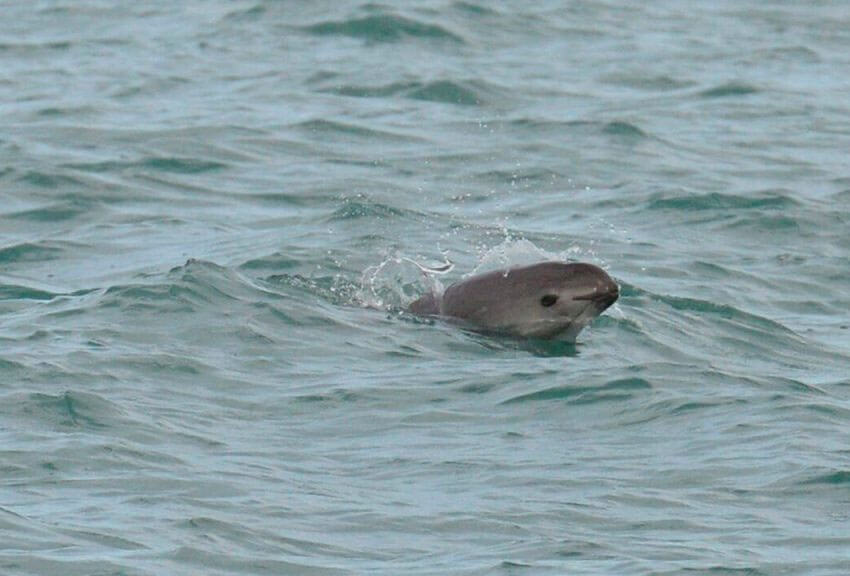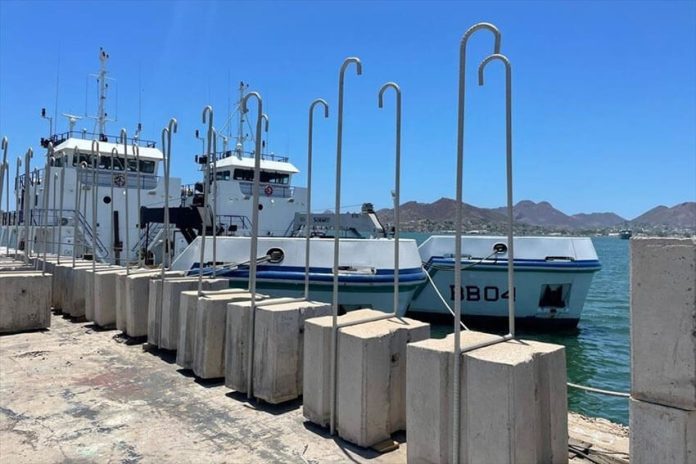A new plan to protect the vaquita marina porpoise could in fact create an additional risk for the critically endangered mammal, according to experts.
The navy announced last week that it would drop concrete blocks onto the bottom of the upper Gulf of California to snag illegal gillnets that entangle and drown vaquitas. The nets are used to catch totoaba, a fish whose swim bladder is a delicacy in China and sells for thousands of dollars per kilogram.
The navy said in a statement it planned to start placing the blocks – each of which has a long hook attached to it – on the bottom of a no-fishing zone known as the zero tolerance area (ZTA) on July 8. Authorities have virtually abandoned efforts to keep small fishing boats out of the area, which is located off the coast of San Felipe, Baja California.
A total of 193 blocks were to be sunk in the ZTA, where a group of scientists recently sighted eight mature vaquitas and one or two calves. The Gulf of California is the only place in the world inhabited by the small porpoises, which can’t be bred in captivity.

The navy said that an environmental impact statement confirmed that the concrete block plan wouldn’t have a “significant environmental impact” on the marine ecosystem. “Mitigation measures will be carried out,” it added, one of which is a program to remove nets snagged by the long hooks.
According to an Associated Press report, environmentalists last week expressed concerns that the metal hooks may accumulate remnants of nets that could continue to entangle and kill marine species. Alex Olivera, Mexico representative of the Center for Biological Diversity, told AP that the plan was “a total surprise.”
“The environmental impact statement was approved in record time, in six weeks. It wasn’t opened to public comment,” he said.
“A net can be snagged on these hooks, and … we’re talking about nets that are hundreds of meters long, so we don’t know if a net snagged down there might be a double-edged sword, and trap vaquitas,” Olivera said.
“Ghost nets,” as abandoned nets are colloquially known, can continue trapping and killing marine species for years, AP said.
Another expert who spoke with the news agency said that the presence of large hooks under the water might discourage fisherman from fishing in the ZTA because they would run the risk of losing nets to snags. However, the person – who asked not to be identified due to fear of reprisals – stressed the importance of regularly removing snagged nets. If they remain in the ZTA, “other species could be killed,” he said.
The navy hasn’t said how often it intends to remove snagged nets. According to AP, divers would probably need to cut nets off each of the 193 blocks every few days to mitigate risks to marine life. Olivera said that the navy didn’t have the capacity to check the blocks for nets every day.
AP also said that fishermen might learn to avoid the hooks. “Given the defiance of the fishermen and the lucrative nature of the illegal trade in dried totoaba bladders, there is … no guarantee that fishermen might not mark — either physically or with GPS — the location of the blocks and fish around them,” it said.
With reports from AP
